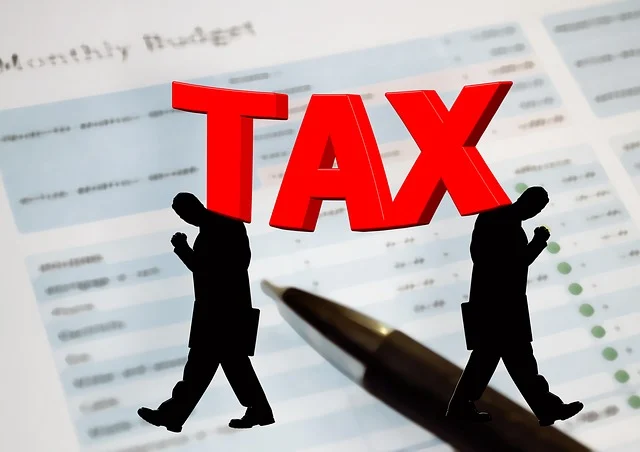How to File Taxes as an Expat in Greece

Filing taxes as an expat in Greece can seem daunting, especially if you’re unfamiliar with the local tax system. However, understanding the process and requirements will help you stay compliant and avoid penalties. Below is a comprehensive guide to navigating the Greek tax system as an expatriate.
1. Understanding the Greek Tax System
Greece operates on a residency-based taxation system , meaning your tax obligations depend on whether you are considered a tax resident. Here’s how it works:
A. Tax Residency
You are considered a tax resident of Greece if:
- You spend more than 183 days in Greece during a calendar year.
- Your primary place of residence or economic interests (e.g., employment, business) is in Greece.
Tax residents are taxed on their worldwide income , while non-residents are only taxed on income earned within Greece.
B. Types of Income Subject to Taxation
The following types of income are taxable in Greece:
- Employment income
- Self-employment income
- Rental income
- Investment income (e.g., dividends, interest)
- Capital gains (e.g., from selling property)
2. Key Tax Rates for Expats
A. Personal Income Tax Rates
Greece uses a progressive tax system. For 2023, the rates are as follows:
- Up to €10,000: 9%
- €10,001–€20,000: 22%
- €20,001–€30,000: 28%
- €30,001–€40,000: 36%
- Over €40,000: 44%
B. Social Security Contributions
If you’re employed in Greece, both you and your employer must contribute to social security. The employee contribution rate is typically 15.5% of gross salary.
C. Special Tax Regime for Foreigners
Greece offers a “Non-Dom” tax regime for certain high-net-worth individuals who relocate to Greece. Under this scheme:
- You pay a flat annual tax of €100,000 (or €200,000 for families) on all foreign-sourced income.
- This option is available for up to 15 years and exempts you from paying taxes on worldwide income.
3. Steps to File Taxes as an Expat
A. Obtain a Greek Tax Identification Number (AFM)
Before filing taxes, you must obtain an AFM (Arithmos Forologikou Mitroou) , which is equivalent to a tax ID number. To get an AFM:
- Visit a local tax office (DOY – Dimosia Oikonomiki Ypiresia ) in person.
- Bring your passport and proof of address (e.g., utility bill, rental agreement).
- If you don’t speak Greek, consider hiring a translator or tax advisor to assist.
B. Register with the Tax Authorities
Once you have an AFM, register with the Greek tax authorities. This step ensures you’re included in the system and can file your taxes electronically.
C. Gather Necessary Documents
Collect all relevant financial documents, including:
- Proof of income (e.g., payslips, contracts, bank statements).
- Rental agreements (if applicable).
- Investment statements (e.g., dividends, interest).
- Medical expenses, donations, or other deductible items.
D. Submit Your Tax Return
In Greece, the tax year runs from January 1 to December 31. Tax returns must be filed annually by June 30 of the following year. You can file your return:
- Online: Through the official Greek tax portal (Taxisnet ). You’ll need your AFM and access credentials.
- In Person: At your local tax office, though online filing is preferred.
E. Pay Any Taxes Owed
After submitting your tax return, you’ll receive a notification detailing the amount owed. Payments can be made via:
- Online banking
- Tax payment offices
- Authorized banks
4. Deductions and Allowances
Greece offers several deductions and allowances that can reduce your taxable income. These include:
A. Standard Deduction
All taxpayers are entitled to a basic tax-free allowance of €12,000 per year.
B. Family Allowances
If you have dependents, you may qualify for additional deductions based on the number of children:
- One child: €1,500
- Two children: €3,000
- Three or more children: €4,500+
C. Other Deductible Expenses
- Medical expenses exceeding 5% of your taxable income.
- Donations to recognized charities.
- Mortgage interest payments (up to €3,000 annually).
5. Double Taxation Treaties
Greece has double taxation treaties with many countries to prevent expats from being taxed twice on the same income. If your home country has a treaty with Greece, you may be eligible for tax credits or exemptions. Consult a tax advisor to understand how these treaties apply to your situation.
6. Common Challenges for Expats
A. Language Barrier
Most tax forms and communications are in Greek. If you’re not fluent, consider hiring a bilingual tax advisor or accountant.
B. Navigating Taxisnet
The Greek tax portal can be complex and requires digital literacy. Seek assistance if you’re unfamiliar with online systems.
C. Late Filing Penalties
Failing to file or pay taxes on time can result in fines and interest charges. Always adhere to deadlines.
7. Tips for Expats Filing Taxes in Greece
A. Hire a Local Tax Advisor
A qualified accountant or tax advisor familiar with Greek tax laws can simplify the process and ensure compliance.
B. Keep Detailed Records
Maintain organized records of all income, expenses, and deductions throughout the year.
C. Stay Updated
Greek tax laws can change frequently. Regularly check updates from the Independent Authority for Public Revenue (AADE) or consult a professional.
D. Explore Tax Benefits
Take advantage of any available tax incentives, such as the Non-Dom regime or deductions for specific expenses.
8. Example Scenario
Let’s say you’re a British expat working remotely in Greece:
- You earn €40,000 annually from a UK-based company.
- You rent an apartment in Athens and spend over 183 days in Greece.
- As a tax resident, you’ll need to declare your worldwide income (€40,000) and pay taxes according to the Greek tax brackets.
- If you qualify for the Non-Dom regime, you could opt for the flat €100,000 annual tax instead.



